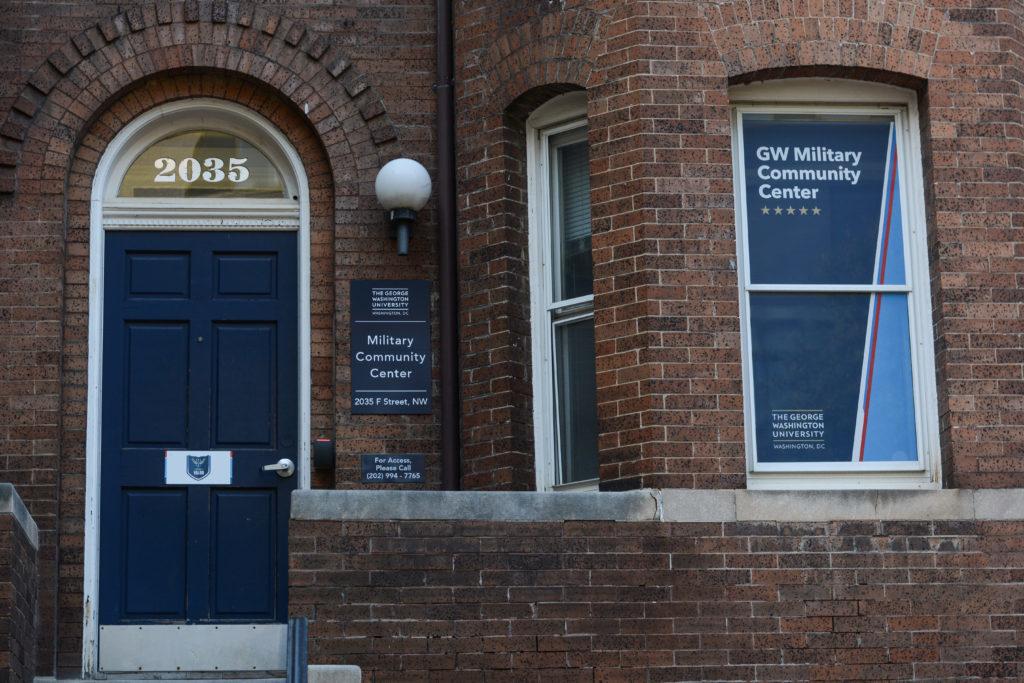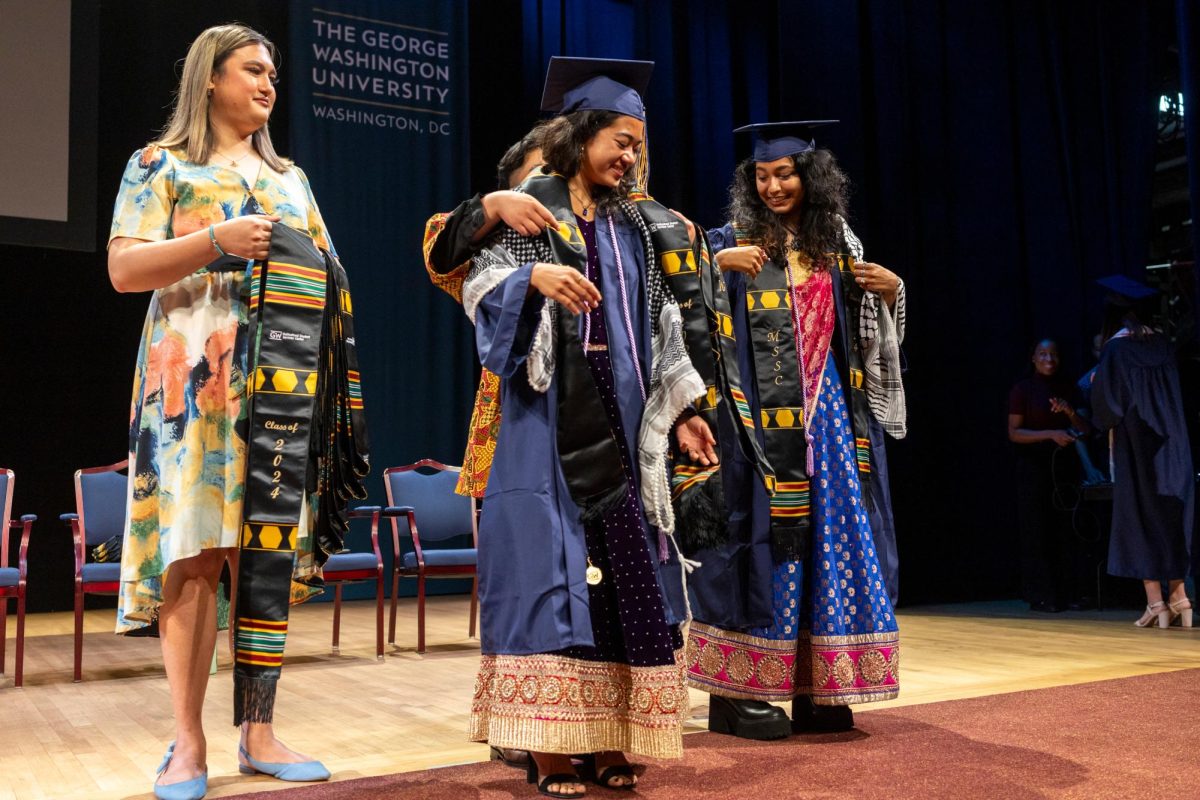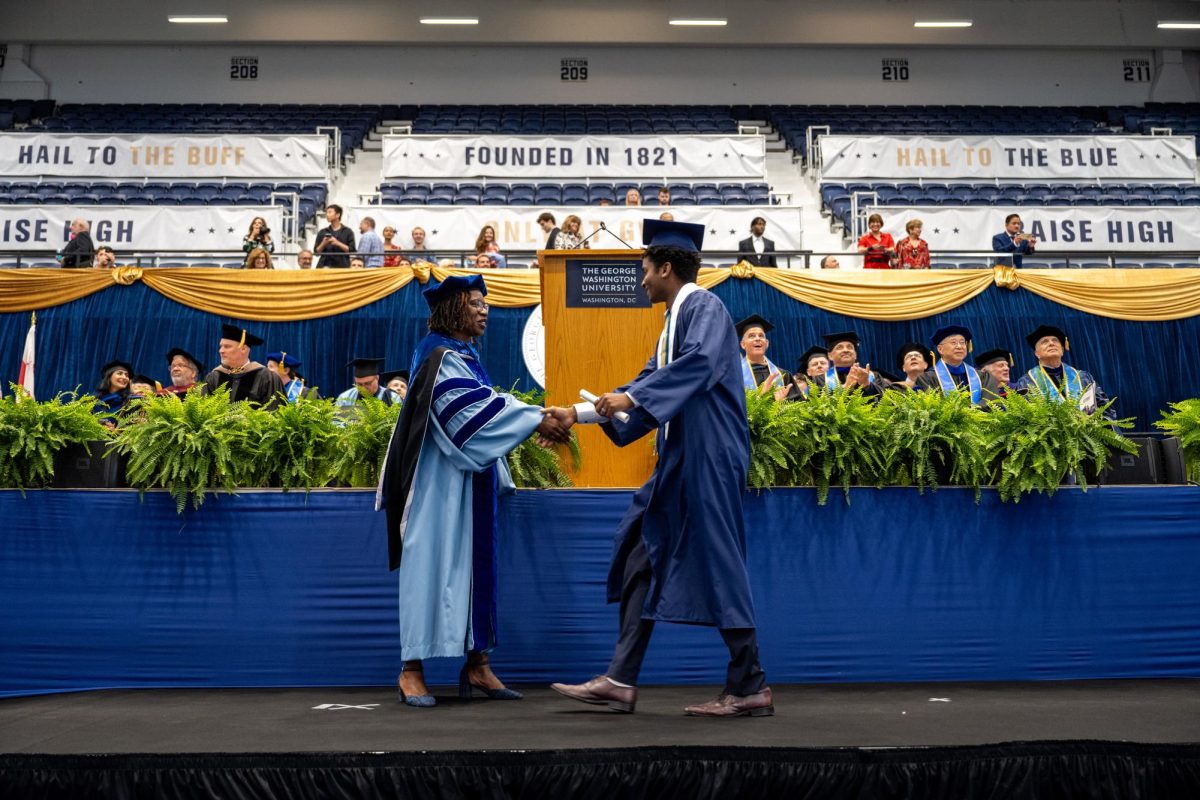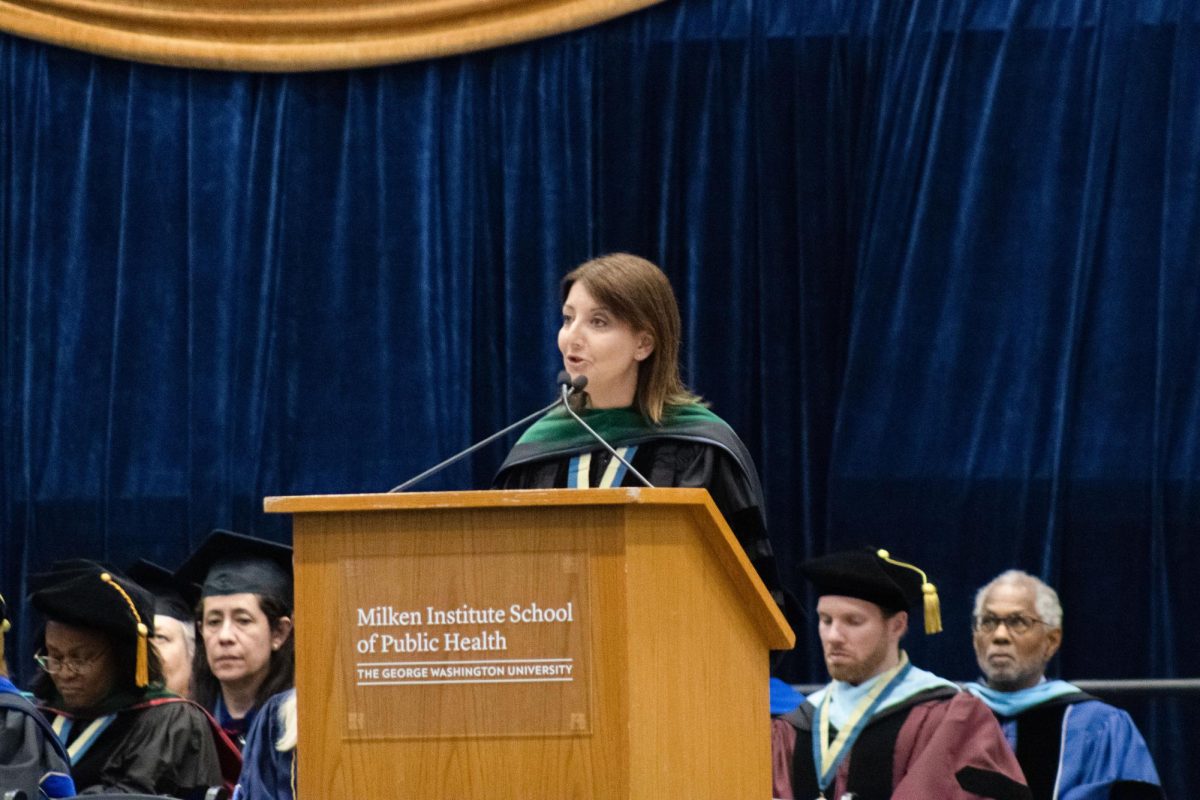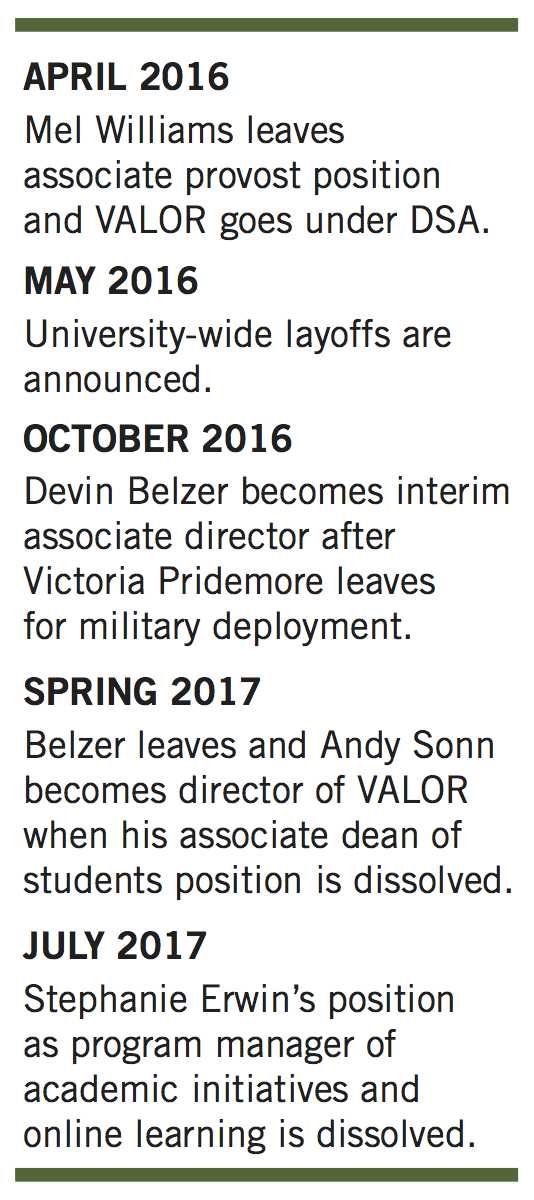
Yonah Bromberg-Gaber | Graphics Eidtor
After a string of administrative departures in the veterans affairs office, student veterans say they have been left in the dark and in search of answers about the future of the office.
Five staff members – three of whom have not been replaced – have either left the Office of Military and Veteran Student Services or taken a leave of absence in the last 18 months, leaving some student veterans questioning the University’s commitment to veteran-specific programs and frustrated with the lack of transparency from the office. Officials said this fall they will conduct a review of the office and look to develop a future vision for its programs.
About 1,860 veterans arrived back on campus this fall to find Stephanie Erwin, project manager for academic initiatives and online education at the Veterans Accelerate Learning Opportunities and Rewards office, had been dismissed without warning, student veterans said.
Her departure surprised veterans on campus who said they didn’t know she was leaving until she packed up her office. The community still hasn’t been given an explanation for her departure, a veteran leader said.
Peter Konwerski, the vice provost and dean of student affairs, declined to say why Erwin’s position was eliminated or give details about the budget for VALOR, the University’s program that provides academic, career and financial support to military and veteran students.
Victoria Pridemore, the associate director of military and veterans student services, was called for active-duty military service last fall, but will eventually return to the University, officials have said in the past.
Devin Belzer took over as interim associate director when Pridemore left until she moved to the business school in the middle of the spring semester to become program manager of graduate programs.
Konwerski said the office was restructured over the past 18 months to prioritize processing students veterans’ benefits through programs like the Yellow Ribbon program and the Department of Veterans Affairs, which provide veterans with services like healthcare and tuition scholarships.
He said this fall the VALOR staff will work with student veterans to conduct a review of the office and develop a strategic plan for the future of its operations. There are currently four full-time staff members in the office along with several supporting staff members, Konwerski said.
“We value the contributions our military and veteran students bring to our University community and we will continue to provide these students with services and support that meet their unique needs,” he said in an email.
A former employee of the VALOR office, who spoke on the condition of anonymity in order to speak candidly about the program, said the lack of communication between VALOR staff and senior officals has been causing frustration with veterans in recent months.
Staff are very dedicated to the program and student veterans, the person said, but staff often need to work overtime just to fufill the basic functions of the office.
“Having an overall vision of where they will go next, rather than just meeting minimum requirements, I think is imperative to the office’s success,” the former employee said.
Yannick Baptiste, the former president and current alumni relations chair of GW Veterans, a veterans advocacy student group, said he was surprised that staff positions would be slashed while the population of student veterans on campus continues to increase.
“The intent a couple of years ago was to be one of the most military-friendly schools,” Baptiste said. “I think the question is, is that still there and how do they plan to do it with less staff and less money?”
In past years, the University committed millions of dollars to programs – including VALOR – to help veterans afford GW and made increasing veteran enrollment a goal of the strategic plan as part of an effort to establish itself as one of the top universities for former service members.
Veterans currently make up more than 7 percent of all students, according to the GW Veterans’ website.
Baptiste, who graduated last spring, said the lack of staff and frequent employee changes have left the office without the resources to create new programming. He said he’s confident staff will continue to maintain and support traditional programs like the Yellow Ribbon program, which gives veterans additional financial aid not covered by federal GI bill.
Tyler McManus, the president of the GW Veterans, said the staff departures – especially Erwin’s unannounced move – made him question future plans for veterans programs. He said that the office restructuring would have necessitated a significant cut in its budget.
“It kind of threw up a red flag, like what’s going on,” he said.
Mel Williams, former associate provost of military and veteran student affairs and the highest-ranking veterans affairs official, left the University last year. The office was then moved under the Division of Student Affairs. Williams helped raise GW’s ranking on the Military Times’ list of best schools for veterans during his tenure, but this year GW’s ranking plummeted more than 50 spots following his departure.
Ronald Wreck, the program director of VALOR at Hampton Roads, GW’s education center in southern Virginia, also left in 2016 — months after Williams, according to his LinkedIn page.
Deane Highby, the townhouse manager at the Military Resource Center and the financial manager at the Office of Academic Integrity, splits time between both offices, McManus said.
After former University President Steven Knapp announced budget cuts for all administrative units, Andrew Sonn took over both the Office of Student Rights and Responsibilities and the veterans affairs office in 2016.
In May, Sonn’s position in the Division of Student Affairs as an assistant dean was dissolved and he now focuses only a veteran’s affairs.
McManus said this academic year he plans to push for more transparency and communication from the office – a seperate entity from GW Veterans.
Since veterans affairs moved under the DSA, the group launched its own projects like opening a veterans resource center on F Street.
“We can do that as a student organization, while as employees of the University they cannot,” McManus said. “If they cut every member of the staff, our organization would still thrive.”


